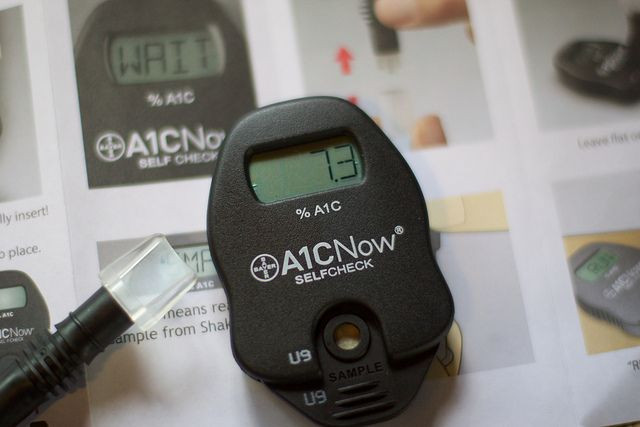Long-Term Use Of Diabetes Medication, Liraglutide, May Burn Out Insulin-Producing Cells And Raise Blood Sugar

A popular type 2 diabetes drug known to lower blood sugar by stabilizing insulin levels may lose its mojo the longer it’s used, new research published Thursday in Cell Metabolism suggests.
Studying mice with transplanted human pancreatic cells, the authors found that long-term daily doses of liraglutide (over 200 days) gradually weakened the cells’ ability to produce insulin in response to glucose. Worse still, while liraglutide did at first reduce blood sugar levels, the subsequent weakening created a rebound effect and led to levels higher than they would have been otherwise.
"Given the lack of clinical studies on the long-term effect of these drugs in diabetes patients, this is a very important discovery," said lead author Dr. Midhat Abdulreda in a statement, Abdulreda is also a member of the Diabetes Research Institute at the University of Miami Miller School of Medicine.
Liraglutide, first approved as Victoza by the FDA in 2009, and its cousins work by mimicking the natural hormone that regulates insulin secretion, GLP-1. GLP-1 ordinarily prompts insulin release in the presence of evaluated glucose, which helps keep blood sugar at a Goldilocks level (just right). For people with type 2 diabetes, however, that process is thrown out of whack, and liraglutide, along with other interventions like diet and exercise, is used to regain balance.
And as the researchers note, there’s been no disagreement over liraglutide’s ability to do exactly that in the short term, although the drug does carry a wide range of side-effects and doesn’t work for everyone. But research on its longer-term effects, spanning years' worth of use, has been lacking until now.
"We also need to take these results into account before prescribing blood-sugar suppressing GLP-1 analogues when planning long-term treatment regimens for patients," added co-author Dr. Per-Olof Berggren, professor at the Rolf Luft Research Centre for Diabetes and Endocrinology at the Karolinska Institutet in Sweden. "Our study also shows in general how to carry out in vivo studies of the long-term effects of drugs on human insulin-producing cells, which should be extremely important to the drug industry."
Of course, animal studies are an imperfect, if valuable, representation of how a drug works in people, and there is some long-term research that contradicts the findings made by Abdulreda and his team. For instance, a 2013 Italian study of 205 diabetes patients on liraglutide found it remained effective for at least two years, though it was least beneficial for patients who had lived with their diabetes for a long period of time. “Improvements in metabolic control and body weight are maintained after two years, suggesting durability and safety of liraglutide in the long run,” the study concluded.
In other words, the jury is still likely out on liraglutide’s long-term effectiveness. Given it was additionally approved as an obesity drug in 2014, though, it’s a question that demands further exploration.
Source: Abdulreda M, Rodriguez-Diaz R, Caicedo A, et al. Liraglutide Compromises Pancreatic β Cell Function in a Humanized Mouse Model. Cell Metabolism. 2016.
Published by Medicaldaily.com



























